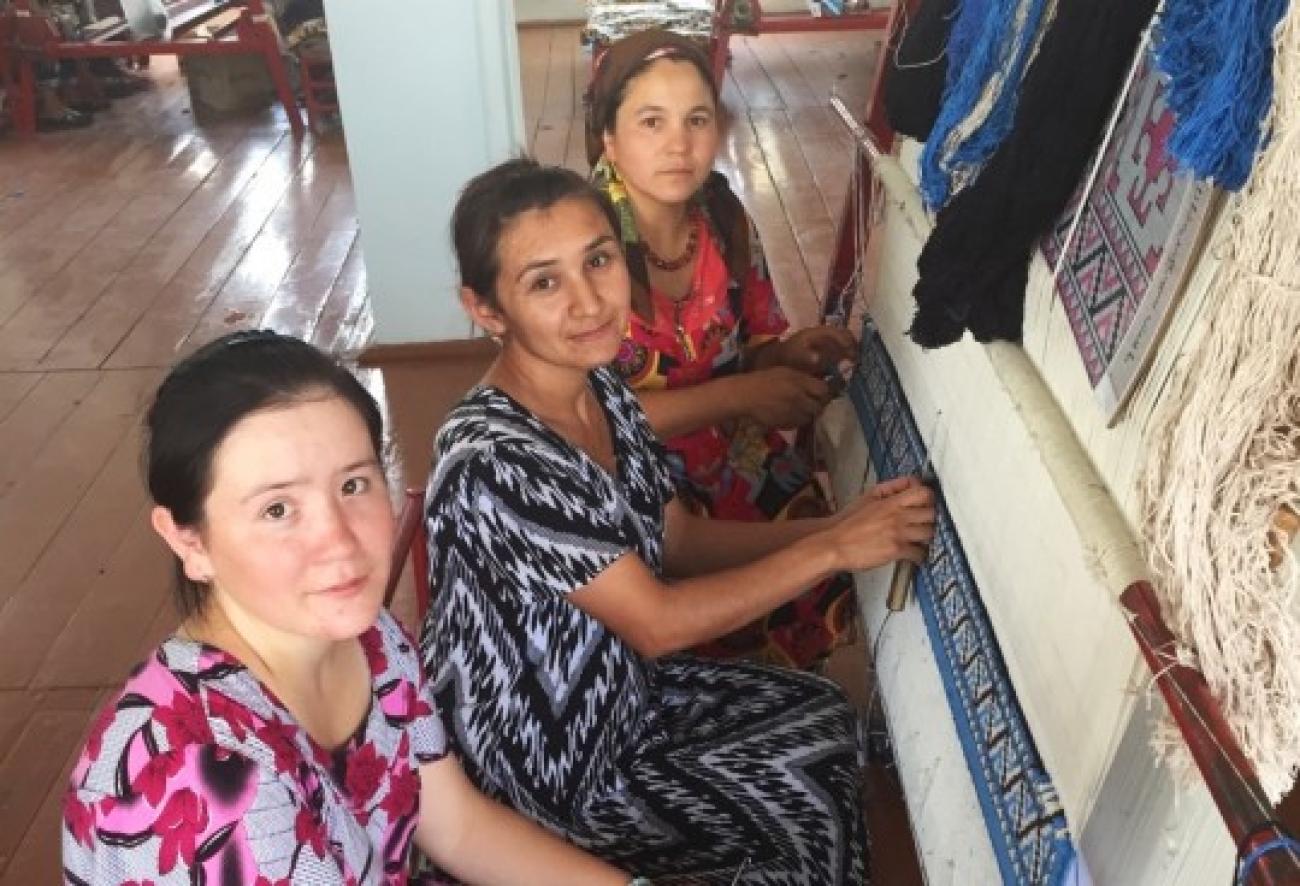Weaving a stronger future in Uzbekistan

Munavaar is only 24 years old, but dreams of becoming a famous weaver of silk carpets one day.
Munavaar is only 24 years old, but dreams of becoming a famous weaver of silk carpets one day. But a few years ago, this dream would have been incomprehensible to someone like her living in a rural village in Uzbekistan.
She had only graduated from secondary school, without continuing to a college or institution that would give her a specialty. Her only option would have been low-paying, seasonal agricultural work, which would not have provided much help in supporting her husband, son, and daughter (now 6 and 4 respectively).
Highlights
- The project empowered rural women through addressing the craft-making skills of the community.
- The project covered six communities targeting 3,691 people (1,869 women and 1,822 men).
- New World, a UNDP and Coca-Cola Foundation project, has 43 projects in 19 countries, providing access to improved water and sanitation to more than 100,000 people.
In Uzbekistan, women’s low contribution to family income hinders their ability to influence how the household budget is allocated, whether for day-to-day expenditures or large purchases and investments. Therefore, UNDP, together with local partners, initiated a project aimed at empowering rural women in the Samarkand region.
Munavaar was one of the 50 rural women trained in carpet weaving at the “Carpet Studio” of the Samarkand-Bukhara Silk Carpet Factory, with the support of the New World Project. The Studio is a small, full-service production house that also provides trainings and opportunities for employment, as it produces 20-30 high-quality carpets a year.
There is a long tradition of carpet weaving in Uzbekistan, where the manufacture of carpets is widespread and mainly done by women. But in the past, the women in these villages produced coarse woolen carpets. They had never woven highly designed natural silk carpets.
Munavaar’s interest in the program was sparked by the chance for her to have a serious, sustainable business – the chance to be employed at a carpet factory with a stable salary.
At first, though, it was difficult for her to attend the classes. Young women like her hadn’t done work like this before. It was also the fruit harvesting season, and her whole family makes its living from collecting cherries and other fruits and preserving food for winter. And who would take care of the children, if her mother-in-law was too old and her husband was busy with his business? To add to that, there was distrust of the project. In many cases activities like this ended with the project and didn’t truly provide long term opportunities.
However, all Munavvar was thinking about was becoming a skilled carpet weaver. After she couldn’t go to the factory where the trainings were held, representatives of the project, together with people from the local hokimiyat (authority) and the director of the factory, came to her house to speak to her family members. They convinced the family to let Munavvar study the carpet weaving business and make the best out of her future. The mother in-law said, “Since such respected people came and asked for her, she must be very good at studies and surely will become an excellent skilled carpet weaver.”
At the opening ceremony of the Carpet Studio, after Munavvar received her certificate, she told her mother in-law, “Thanks for all your support. I would like to dedicate my certificate to you. Thanks to you, my whole life has changed.”
Munavaar is now successfully working as part of the Studio weavers collective. Their produces are purchased by locals, tourists, organizations, and companies. They are sent to Tashkent and other cities, as well as exported outside Uzbekistan. And Munavaar has many years ahead to work on becoming famous in her trade.





